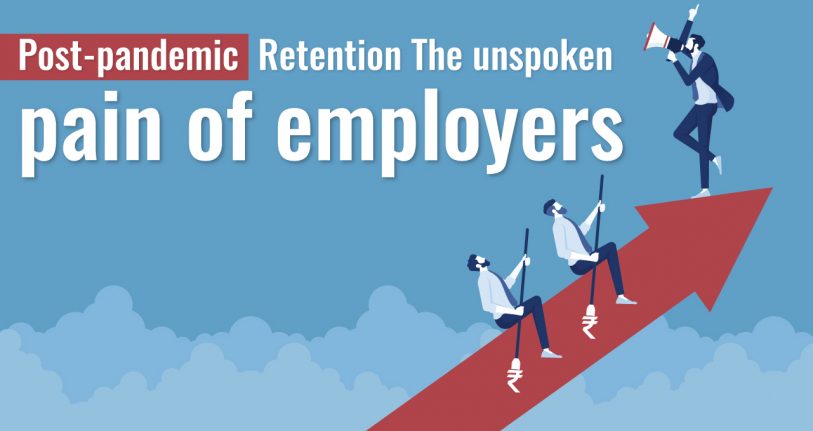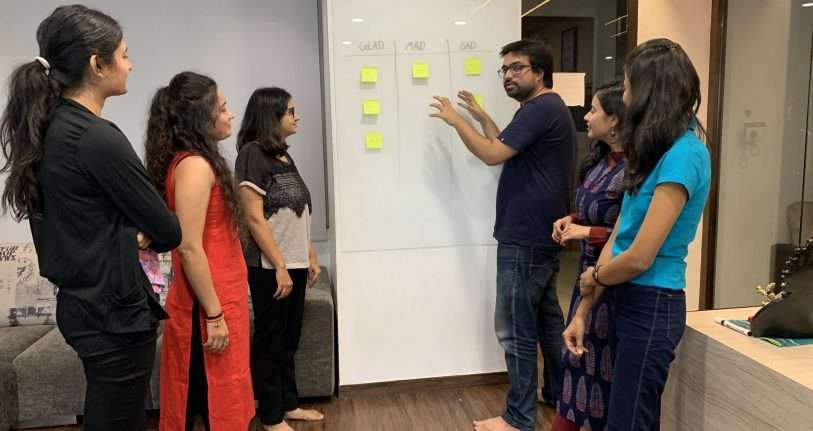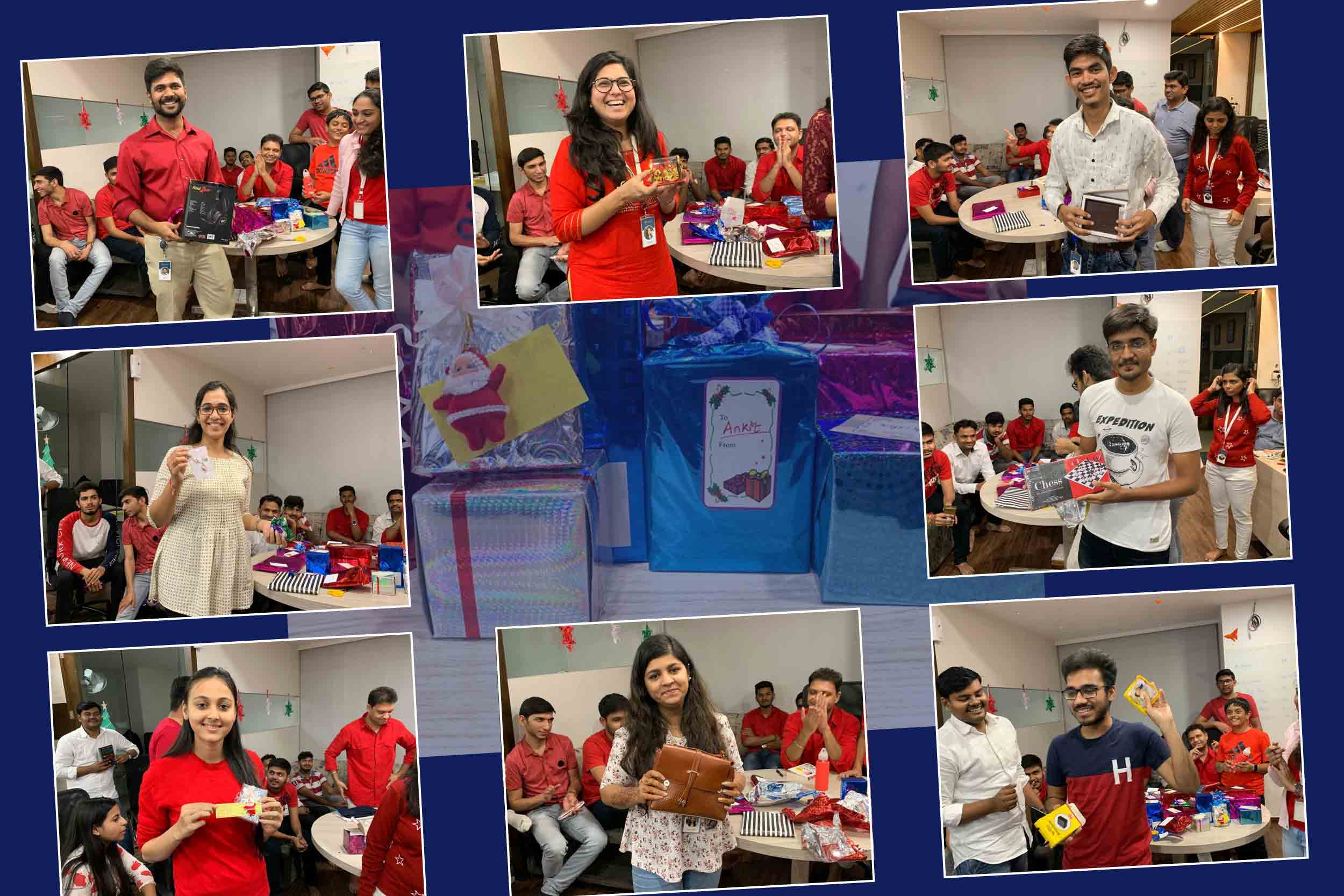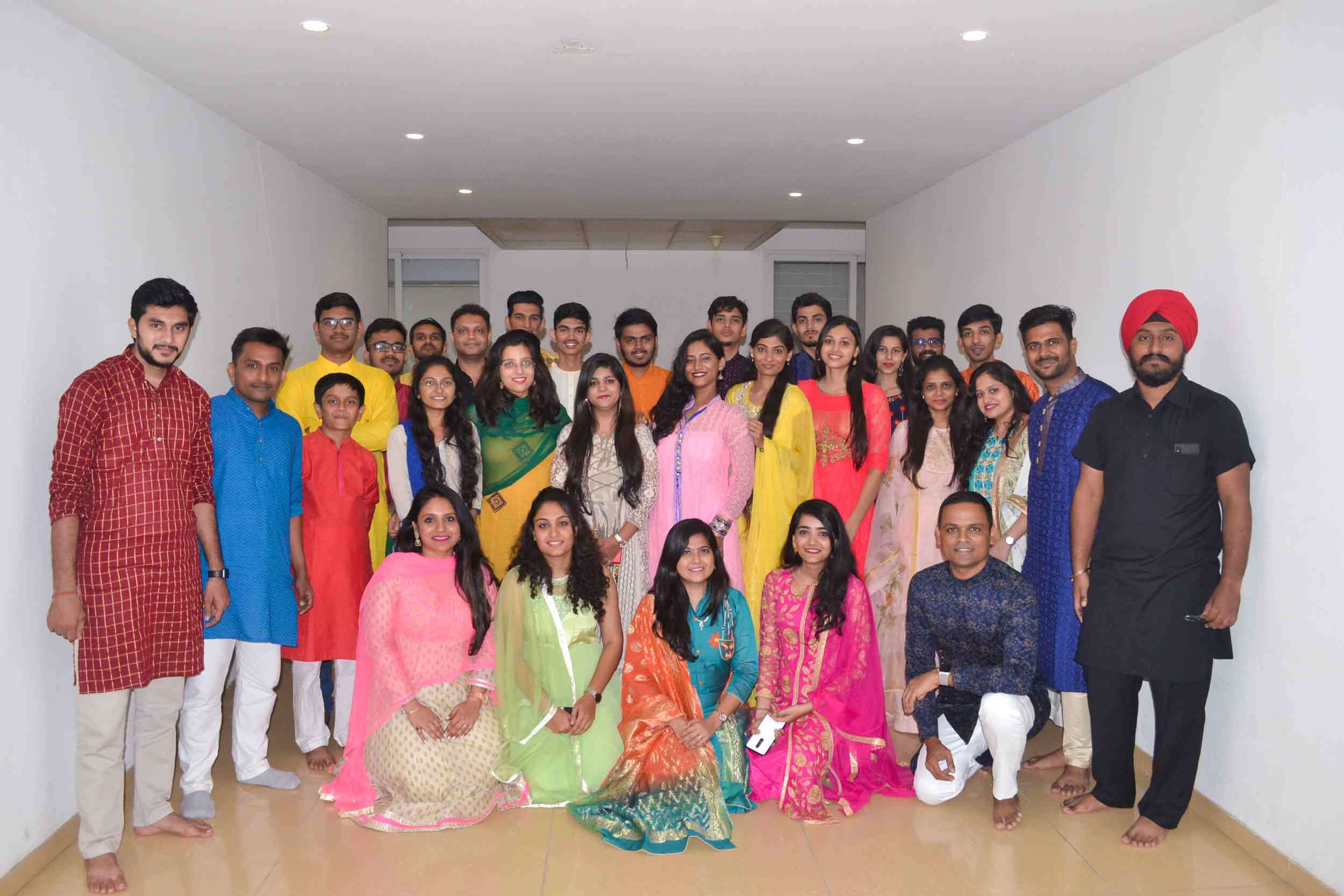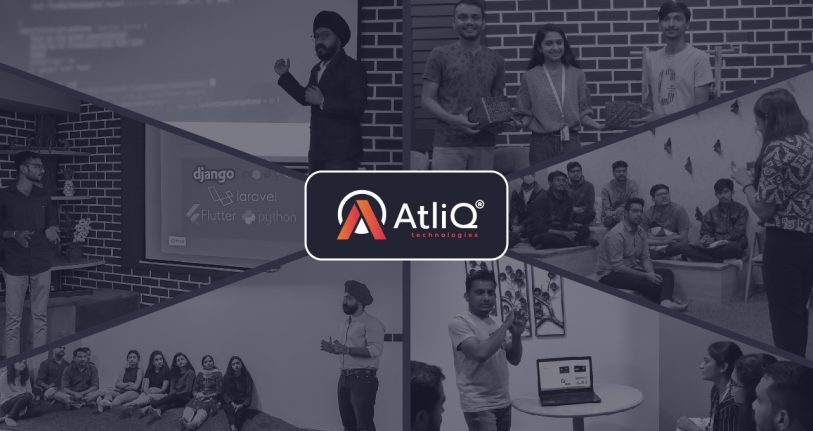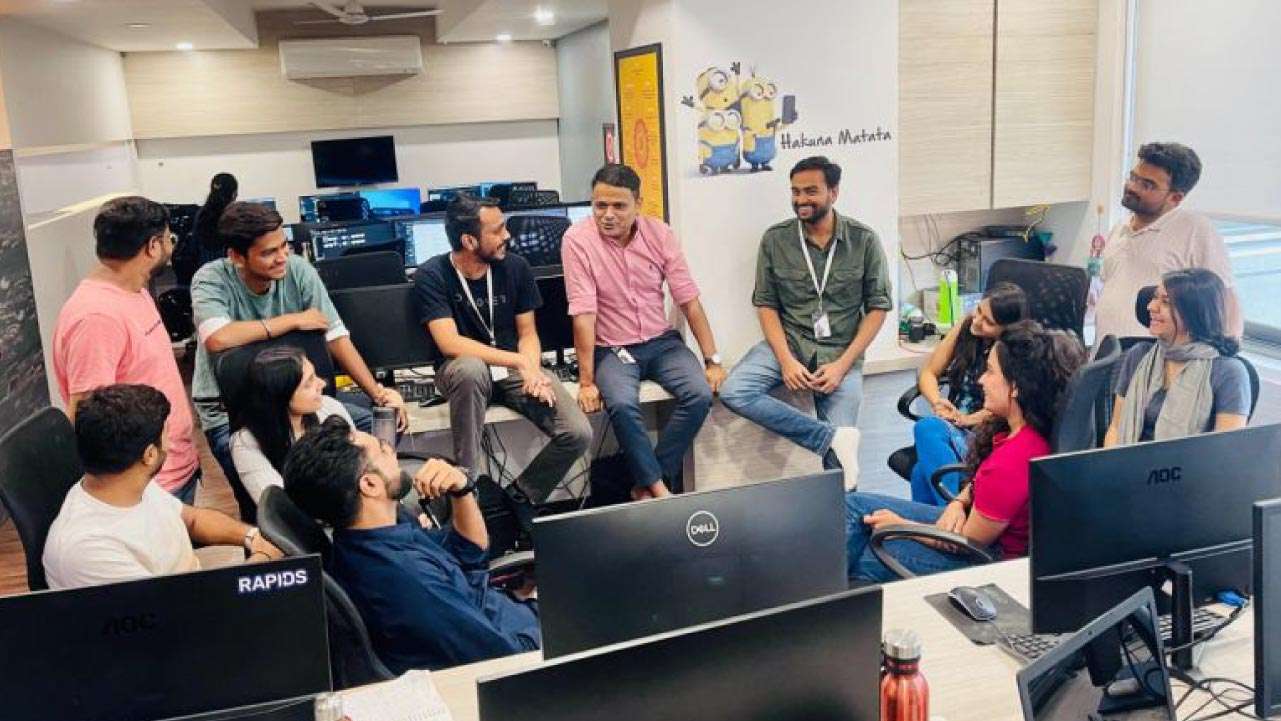Post-Pandemic Retention- The Unspoken Pain of Employers
As per recent reports of Gartner Research, the rate of attrition rose from 10% to 20% in the year 2021. The attrition rate is the departure of employees for any voluntary or involuntary reason. Post the low attrition rates during the pandemic, the job market is picking up again which has led to a huge retention challenge for employers. As the pandemic dragged on, the employee started feeling a lack of connection and being left isolated. Even though the world saw it as a time of unemployment, employee retention was the biggest concern of employers. Having the right talent is the most important for a smooth process, especially when operating remotely. Employee Retention can not be determined by a single factor as it is a bundle of several factors. The most prominent factors, apart from the pay scale are- career development, work stress, management style, autonomy, flexibility, compensation, and work-life balance. In general, employers are in need to invest their time and money in retaining talents, and in this after pandemic period, they are more concerned about it than ever before. The Great Resignation Ever since the outbreak of the Covid pandemic, there have been a number of people either quitting their jobs or being laid off. This move has been termed the Great Resignation. It adds up to the misery job market where the people are already leaving either due to covid concerns or a general strike. All companies are struggling to manage talents during the Great Resignation period, the mid-size and startups were hit the hardest. The same old approaches aren’t working and not building the capabilities companies will need in the long run. As pandemic reshaped lives, millennials are leaving their current jobs in search of more money, flexibility, and peace of mind. The pandemic period made them rethink what their work means to them, how well they are valued, or how balanced they are. In normal times, huge resignation is viewed as a sign of a healthy economy that has plenty of jobs to offer. But in such unpleasant times, millions of people being out there without a job have led to the acute labor shortage. Employee Retention in Midsize Companies Midsize companies have always faced problems when it comes to addressing the talent shortage. When compared to the big companies, the midsize companies have a high appetite for talent but weak talent planning. The higher appetite for talent is because of the fast growth compared to the rest of the economy. The major problem of finding the right talent starts right from the inability of attracting resumes. Followed by this, they don’t have deep pockets which often compels them to let go of some talent. Attracting and Retaining Talents The companies should identify what exactly is lacking in their talent needs and prioritize the same. Revamping the recruitment process is something that might work wonders for many firms. Of all, the most important task for a company would be recrafting its retention strategy. Through this, one can get through the pandemic talent crisis and establish strong long-term capabilities. Some of the key actions that can help in efficient talent retaining are: Leaves: While Covid has taken a toll on the health of many, leaves have been a major concern for the employees. Historically, the leaves have been considered more narrowly whereas, in reality, the reasons vary, which the employers must acknowledge. In the coming year, the companies are in need to recognize that a leave taken can be more than sick leave, and thus need a more people-forward approach. A gender agnostic approach is what attracts more millennials. Flexibility: No secret that the pandemic proved that the majority of the work doesn’t actually need office presence and can be managed remotely. Habituated to the change, employees are now seeking flexible working options. Even though this complicates the logistics and management for the employers, it increases the trust among the team and thus benefits the organisation as a whole. Hear Before Speak: An empathetic approach of employers starts when they actually listen to the problem rather than throwing out solutions to them. Games and happy hours no more attract the employees’ loyalty and content. Listening to the employees truly is the most empathetic thing that an employer can offer when considering the work environment’s betterment. Build Better Boss: Dissatisfaction with the immediate supervisor is one of the major reasons why people leave their jobs. Historically people never focused on investing much in leadership, which is now considered an important part of the overall development. It can provide the rise of meaningful leadership and also retention of the teams. Explicit About Career: Employers think that people will find a better potential opportunity and switch. This is very much common in the pandemic situation. Thus it becomes important for the employees to know about the advancement opportunities within the organisation itself. Employee Value Proposition: The term stands for what employees give and what they get. An employee gives- time, effort, ideas, expertise, experience, etc, for what in return gets tangible rewards, wages, perks, empowerment, etc. Money Matters: Given everything, an employee’s priority would be money. Thus companies should set up a clear compensation strategy that is not only designed to appreciate the talent but also focus on retention and giving additional benefits. Companies need to get more creative than their rivals when it comes to creative and flexible rewards. For the employers, the coming year is to be the year of empathy as the people forward companies are likely to win in attracting and retaining the talents. By combining the given points, and focusing the initiatives towards a person-forward approach, the companies can get through the current crisis. The talent management team needs to revamp their process, to be more planful about retention and thus have strong long-term talent capabilities. At Atliq, our talented team understands the quote-” To win the marketplace, You should win in the workplace first” and we without a doubt have been winning the hearts of our employees. We have always kept our employees as the first priority, and have been sticking around as a family. What pushes our employees to make wonders happen is they are eligible for the appraisals and promotion quarterly, instead of annually. Annual appraisal cycles were set in order to beat inflation and more often than not, they do not account for the hard work employees put into their work throughout the year. Recognition and monetary rewards keep the employees motivated and make them strive for the better. For a considerable time, we have been flexible with the working hours and have also introduced WFH policies acknowledging the needs of the employees. The pandemic has taught us all that employees can deliver exceptional results even when there is little oversight and we aim to carry this learning forward. Not only this, since day one we’ve had an open-door policy which means that any employee can walk up to their senior, the head of the department, or even the CEO to discuss their concerns and share their feedback. We hold our employees’ opinions and their needs in very high regard and always aim to listen openly and improve ourselves as we go. This is one of the reasons our mandates and policies keep changing to accommodate the needs of our team members. Upskilling and leadership programs are also not new to us. We have regular knowledge-sharing seminars and help each member reach their full potential by providing the platform to learn and grow as they please. It is high time that employers understand what sets them apart is their workforce, without which the business or enterprise cannot achieve its collective goal. Empathy is not to be seen as a liability anymore! In fact, the smiles on our employees’ faces along with their determination to go above and beyond is proof that empathy is an invaluable asset in today’s world!
